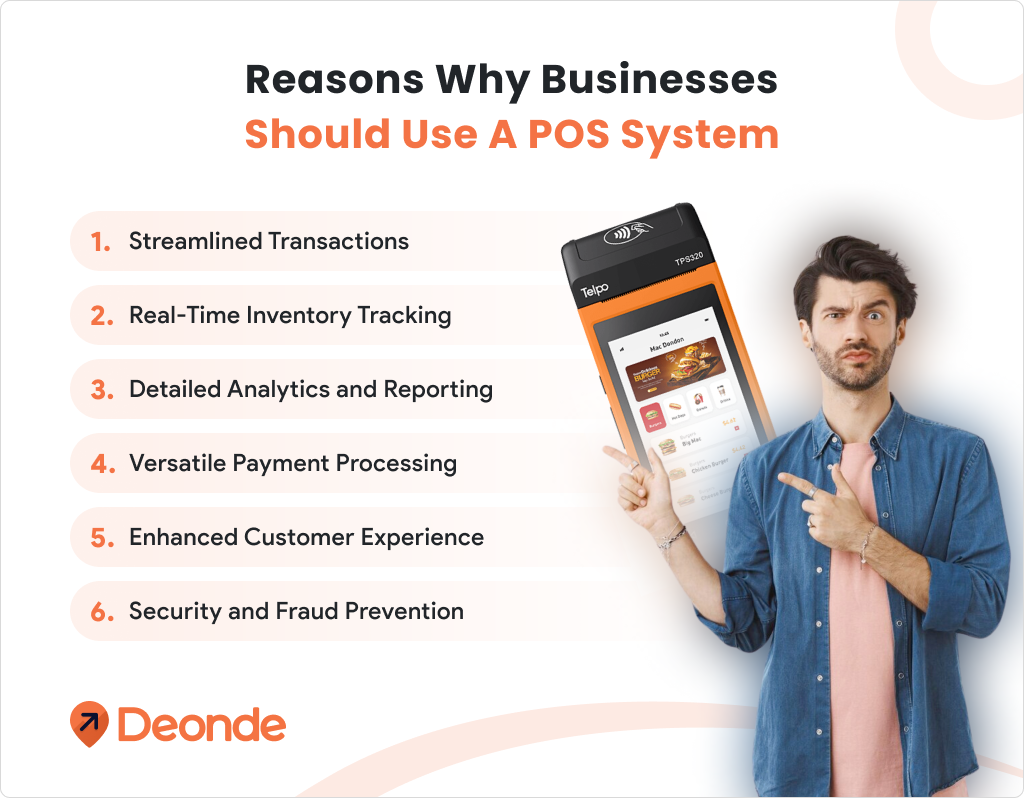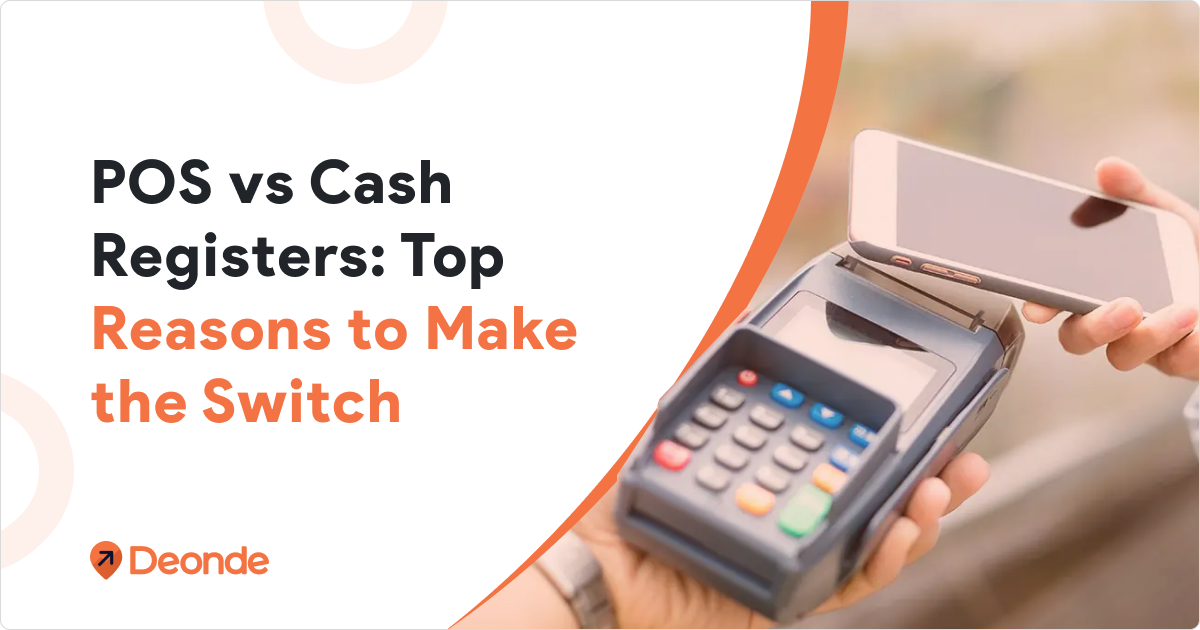In this age of the 21st century, where everything is gradually getting automated with a period, the old system of Ledger books is also getting older and fatter with time. As humans, we want things to be super fast, more comfortable, and fitting in nature. In this time when everyone is very much focused on faster solutions, we should also shift from ledgers and buy POS System software.
In earlier days, when people managed the restaurants using clumsy and old ledger books, there was little accountability. Hence, it was also a prime reason why the restaurants might have lost a considerable amount of money And Why Retail Business Owners Should Invest in POS System? So we want you to upgrade by getting new POS software for restaurants.
It is also compatible with different devices, such as tablets, smartphones, desktops, and laptops. Whether you have an existing business or you are in the process of launching a new business, you must have this software. This helps you build your business and can also help with food delivery.
What Is a POS System?
A POS (Point of Sale) system is a combination of software and hardware tech solution for the proper management of tasks like sales transactions, inventory management and other valuable data reporting as well as customer interactions.
Let’s focus on the main advantages of POS System
1. Fast Service
No one wants to spend hours in lines waiting to be served. Customers will also be tired of such a business and prefer to shop in stores with fast service. One of the most significant benefits of a POS system is that it facilitates quick transactions compared to the manual method. Most of these systems come with reliable hardware, such as a barcode scanner and receipt printer, which allows your customers to be served quickly.
2. Boosts Productivity
Another thing about these systems is that they lower the costs incurred in the business. For one reason, you might not need to employ as many employees as possible, and hence, you can reduce the cost. You should also note that these systems come with essential features that boost the productivity of your employees, like time-management features.
3. Improves Accuracy
Once you change the price of a product, it will be updated automatically. In short, this will ensure that the costs of all the products match the amount given to customers. It will further ensure no discrepancies in the pricing of the products. Hence, this leads to a sound Audit system and can help manage business.
4. Business Reports
Most of the POS systems provide access to different customizable reports. These reports can feature vital information, such as daily sales and stock management reports. Through these reports, you can quickly check common sales trends such as which products are in demand – this will allow you to organize your stock in advance or before a particular season.
Top Reasons to Switch to a POS System

1. Streamlined Transactions
There is a risk of errors because cash registers depend on input entered manually. POS systems automate all these and ensure the following:
- Faster checkout times
- Correct pricing and discounts
- Easier returns & exchanges
A POS system reduces transaction time and allows your team to focus on serving customers per customer request.
2. Real-Time Inventory Tracking
While there are many challenges that retail and restaurant businesses face, one of the biggest is managing inventory. Also, traditional cash registers cannot record stock levels leading to either an overstock or shortage. A POS system provides:
- Real-time inventory updates
- Low-stock alerts
- Specific analysis of how products are doing
This saves time and decreases stock mismanagement-related costs
3. Detailed Analytics and Reporting
While cash registers are limited to writing down basic sale information, the POS systems write analytic insights as follows:
- Trends of daily, weekly and monthly sales
- Top-performing products
- Customer purchasing behavior
They enable you to understand data-driven decision making allowing you to change prices or schedule promotions, etc.
4. Versatile Payment Processing
The customers of today expect flexibility with payment options. Cash registers can accept cash and card payments, whereas point-of-sale solutions can work with:
- Contactless payments (NFC)
- Mobile wallets (Google Pay, Apple Pay etc.)
- Split payments
Such flexibility makes for a seamless experience for the customers and higher chances of sales.
5. Enhanced Customer Experience
POS systems allow businesses to collect customer data and use it to personalize experiences. Features like loyalty programs, promotional offers, and targeted marketing campaigns help build long-term customer relationships.
6. Security and Fraud Prevention
POS systems offer a strong level of security including:
- Limiting employee access via their permissions
- Tracking the transactions with audit trails
- Integrating with tools that detect fraud
These aspects minimize the steals and false data entered for your business’s safety.
Challenges of Cash Registers in Today’s Business World
While cash registers were once the gold standard, they fall short in several key areas:
1. Limited functionality – Can’t manage inventory or generate detailed reports.
2. Manual processes – Prone to errors and inefficiency.
3. Outdated technology – Incompatible with modern payment methods and integrations.
By clinging to a cash register, businesses risk falling behind competitors who leverage advanced tools to enhance their operations.
How to Choose the Right POS System
When transitioning from a cash register to a POS system, consider these factors:
- Ease of use: Ensure the system is user-friendly for staff.
- Features: Look for essential tools like inventory tracking, reporting, and payment integrations.
- Scalability: Choose a system that grows with your business.
- Cost: Compare subscription plans and initial setup fees.
Investing in the right POS system can significantly impact your bottom line and overall efficiency.
Conclusion
Switching from a cash register to a POS system is a smart investment for businesses looking to streamline operations, enhance customer experiences, and future-proof their processes. With features that go beyond simple transactions, a POS system empowers your business to thrive in a competitive market.
The advantages of the POS System are much more considered than those of the other sectors as this enables us to automate processes, which helps us cut costs and maximize profits.Do you wish to get a suitable POS software for your chain of restaurants, food outlets, or café? You can always discuss the same with our Sales Team at Deonde.
Frequently Asked Questions (FAQ) About Switching from Cash Registers to POS Systems
1. What is the difference between a cash register and a POS system?
A cash register is a traditional device that handles basic sales transactions, limited to recording sales and storing cash. In contrast, a Point of Sale (POS) system offers advanced features such as inventory management, detailed sales reporting, multiple payment options, customer data tracking, and integration with other business tools.
2. Why should I consider switching from a cash register to a POS system?
Switching to a POS system can improve accuracy, reduce manual errors, streamline checkout processes, and provide insightful reports that help you make data-driven business decisions. POS systems also support various payment options and offer real-time inventory tracking, enhancing overall operational efficiency.
3. Is it difficult to learn and use a POS system?
Most POS systems are designed to be user-friendly, with intuitive interfaces that are easy to navigate. Training is often minimal, and many POS providers offer tutorials and customer support to help your team get started
4. How long does it take to switch from a cash register to a POS system?
The switch from a cash register to a POS system can usually be completed in a few days, depending on the complexity of your business setup. Most POS providers offer setup and training assistance, so your team can start using the system quickly.




